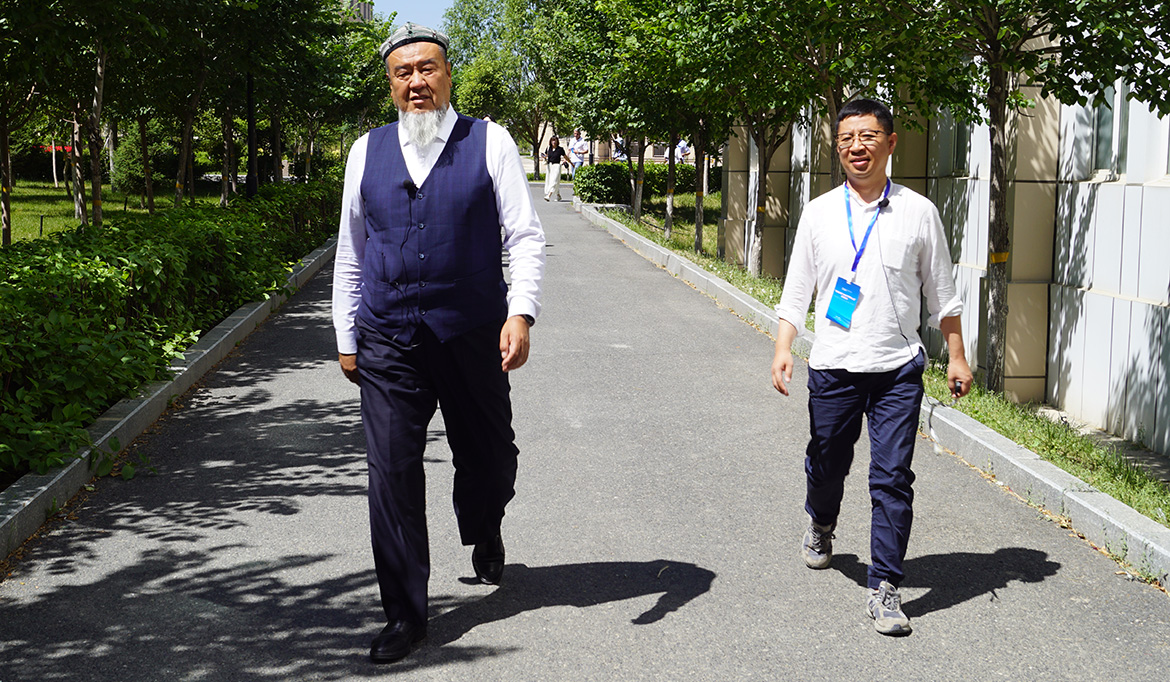NewsVoice visited China to find out more about the situation for Muslims and Uyghurs and whether they can practice Islam in Xinjiang without restrictions. Some Western media outlets claim that this is not the case. However, our research found that worshipping Islam is not a problem. Rather, Islam and Chinese culture nourish each other, and that has been going on for hundreds of years.
Abudurekefu Tumuniyazi, the president of the Islamic Institute in Xinjiang, shared tea with me and other journalists while visiting the Institute. Tumuniyazi belongs to the Uyghur ethnic group. He is a very tall man with a strong voice, a lot of pondus, and a clear vision and understanding of Islam’s nature.
Over the years, the center has received millions in funding from the Chinese government.
Before I came to Xinjiang, I intentionally decided to prepare as little as possible about the institute, so I expected to visit an office on a busy street in town. Instead, I experienced a vast complex covering thousands of square meters.
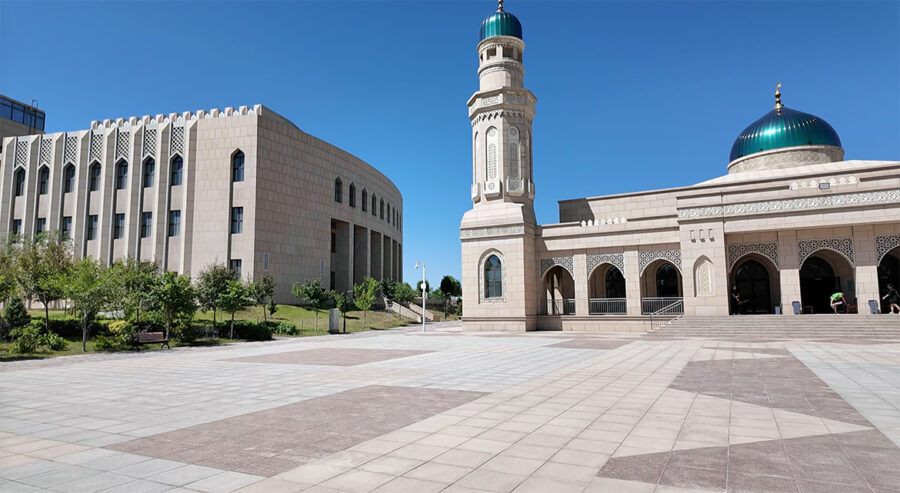
Ten religious institutions exist in Xinjiang, including the Xinjiang Islamic Institute, its eight branches, and one Islamic Scriptures School. The Islamic operation is comprehensive, and around 1000 students are accepted annually.
Tumuniyazi gave us a tour of the facilities. We visited a classroom, the library, and reading rooms with modern computers and tablets. Students can read magazines and books pertinent to their studies in Islamic culture, history, and religion.
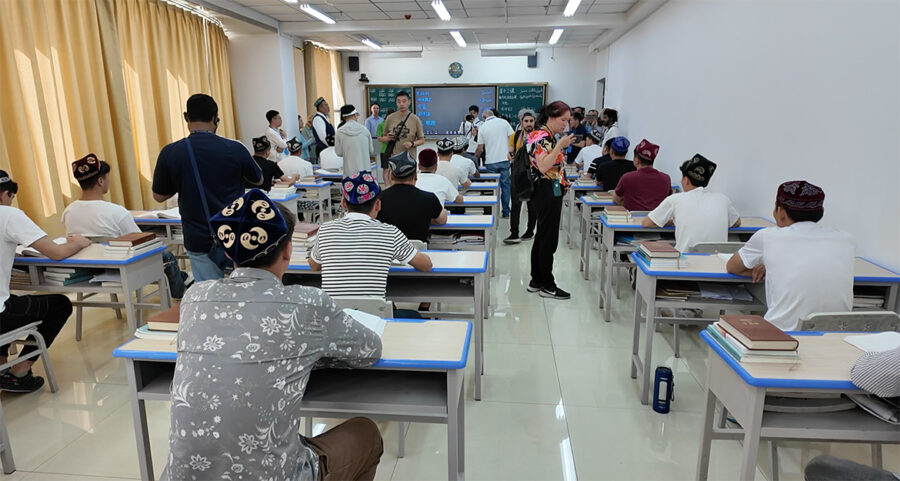
We also had the opportunity to ask questions we liked during a sit-down inside the mosque with the Imam.
The Chinese government cooperates with the Islamic communities in Xinjiang, giving them financial support for their operations. In return, the government expects a society with no conflicts between ethnic and religious groups and among minorities, a society free from separatism and terrorism, a goal that has been achieved to a large extent after the turbulent years of the 90:th.
Islam in Xinjiang – no problems
During a speech at the 56th Press Conference of Xinjiang Uygur Autonomous Region on Xinjiang-related Issues, Tumuniyazi said, quote:
”Xinjiang fully implements the policy of freedom of religious belief and guarantees the normal religious activities and religious needs of religious believers in accordance with the law.
In Xinjiang, all legal religious activities carried out by religious believers in religious places and in their homes in accordance with religious customs, such as worshiping, fasting and religious festivals, are conducted by religious organizations and religious believers themselves and protected by law.”
Tumuniyazi says that the so-called “persecution of Muslims” in Xinjiang is mainly claimed by anti-China think tanks in the United States. Some media outlets in the West then echo these notions.
However, the international community generally knows that the Chinese government fully guarantees freedom of religious belief in Xinjiang. Many journalists who have traveled to Xinjiang have discovered this for themselves.
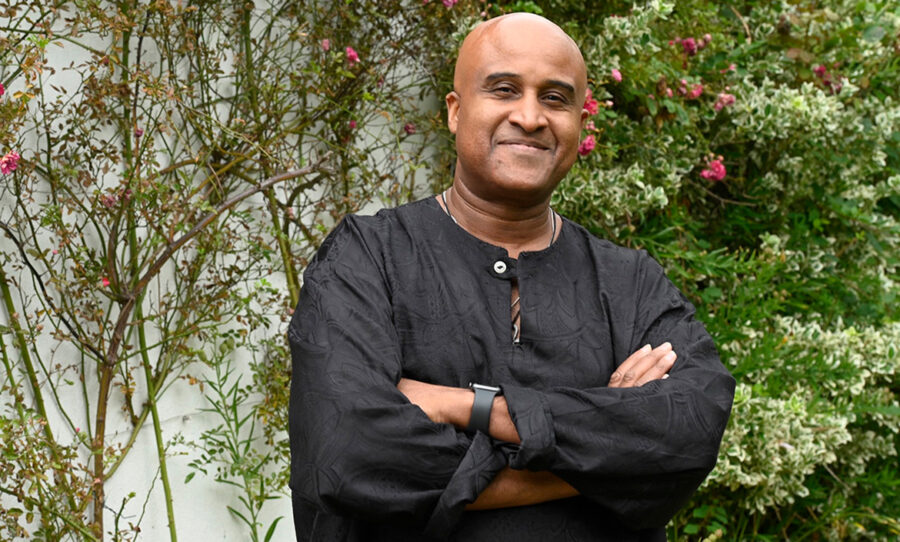
One journalist who made another trip to Xinjiang is Roger McKenzie, the British magazine Morning Star International editor. He writes in July 2024, quote:
”To be crystal clear: at no time did I witness any attempt to block anyone from being able to worship according to the Islamic faith or, for that matter, any other religion.
I heard no criticism of the government over religious persecution from senior religious figures or anyone else I met during my visit.
I was never stopped from speaking with anyone in any of the large crowds of people that I found myself in across the region.”
The old campus and the Islamic Institute were founded in 1987, and the new center’s construction started in 2014 and was completed in 2019. The central and provincial governments invested 270 million yuan to build the new center.
The center includes teaching buildings, a library, dormitories, and a student canteen. A typical Islamic education takes three years.
Tumuniyazi says the Chinese government has a free approach to religion. People can believe in whatever they want. Freedom of religious belief is a personal business. Everyone is equal before the law and regulations. That is how these policies are fully implemented.
From 2013 to 2018, representatives of the National Peoples Congress participated ten times in discussions about religious freedom. They re-established that Society should respect all religious people.
”We don’t give orders to each other,” Tumuniyazi says.
However, religion does not exist outside Chinese laws and regulations. To make things work for China, Islam needs to adapt to socialism. At the same time, the Islamic values are maintained. Women are not mingling or mixing with male Muslims in the mosque or the classrooms. Some believe this is too conservative.
Tumuniyazi says that religion should not be extremism and vice versa. Religion should work against extremism or radicalization, and that is the fundamental mentality of Chinese thinking.
A decade ago, Xinjiang experienced Islamic radicalization. Some people misled the people, but that was stopped in its tracks.
Tumuniyazi states, quote:
”The core of religion and Islam is peace. Islam means peace. However, radicals believe in extremism and killing. They don’t believe in peace. We strike down on these activities and these people”.
He points out clearly that stopping extremism is not the same as targeting any religion or ethnic minority.
Most provocations to radicalize seem to enter China via the internet, but the Iman is also confirming foreign forces are trying to instigate Islamic extremism.
Islam was initially introduced via the Silk Road hundreds of years ago. Since then, it has been deeply integrated with Chinese culture, including socialism. The Imam says China is nourishing this development, while Islam is making Chinese culture richer.
Tumuniyazi compares Chinese thinking with Islamic philosophy. They both share some important values, such as respect for the elderly, respect for administrators, and specific common rules. The Imam even quotes Muhammed, asking people to go to China to acquire knowledge and learn about Chinese culture.
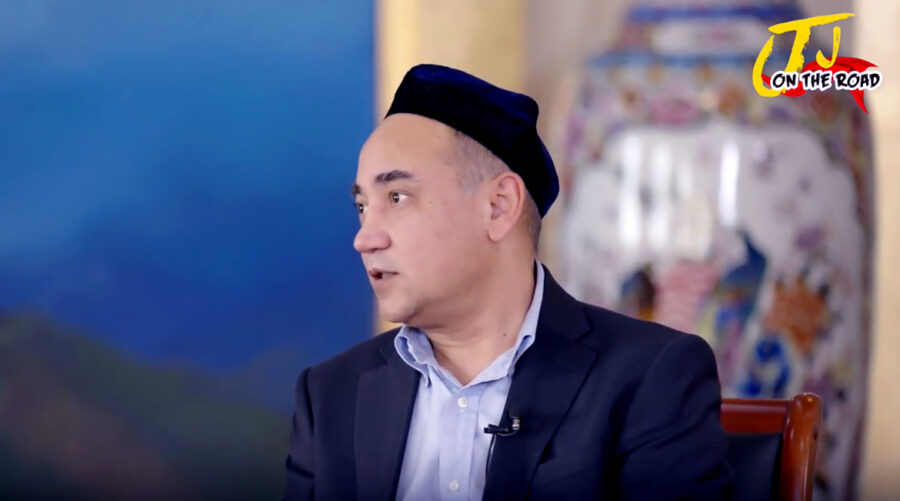
The Chinese news outlet Global Times interviewed Adiljan Haj Kerim (Uyghur), vice president of the China Islamic Association if it is true that specific Western media claim that China is restricting Islam to make it fit into the socialist society.
Kerim answers:
”Guiding Islam to suit the socialist society is not to restrict or oppress the religion. It aims to use the socialist core values as guidance and to lead the religion to integrate into Chinese culture. It is also about helping religious groups to cultivate self-esteem and a positive attitude toward life.
Loving the country, loving the people, loving our religion is the honorable tradition of Islam in China. By promoting Islam’s basic ideals, including peace, love for the country, friendship, equality, forgiveness and benevolence, it can play an important role in deepening love and unity among different ethnic groups and safeguarding stability.”
So, what is my general opinion about Islam and Uygurs in Xinjiang? After traveling around Xinjiang, visiting villages, mosques, and the countryside, and talking to people, other independent journalists, and administrators, I believe Muslims can practice their religion without any problems.
The only individuals who have issues are, for sure, extremists and separatists. And shouldn’t they have problems?
Besides that, I can probably find Muslims who are unhappy with the Chinese government, as I can find people in any country who are not fully satisfied with their leaders, but that is not the issue here.
Instead, questions should be asked about foreign interventions in China, where Muslims and Islamic mercenaries are used and paid to create turbulence, such as the situation in Europe, central Africa, and the Middle East.
Text and video production by Torbjorn Sassersson, NewsVoice.se
Sources and related
- Global Times: Chinese govt actively supports Islamic education in Xinjiang: scholar, 2021
- Li Jingjing: I talked to the Uyghur vice president of China Islamic Association about Islam in China
- Roger McKenzie, The Morning Star: The Xinjiang I saw was a hub of diversity, not oppression
- Roger McKenzie, The Morning Star: Islamist terrorism in Xinjiang
- Aidan Jonah, The Canada Files: Canadian politicians cry about non-existent ‘repression’ of Islam and ethnic culture in Xinjiang
- The Daily Scrum News: The Xinjiang Islamic Institute’s Commitment to Education and Religious Freedom
- Embassy of China in Switzerland: The 56th Press Conference of Xinjiang Uygur Autonomous Region on Xinjiang-related Issues

